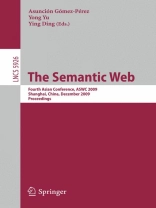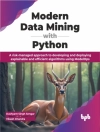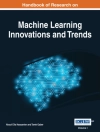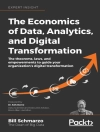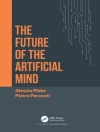The Annual Asian Semantic Web Conference is one of the largest regional events in Asia with focused topics related to the Semantic Web. With the decade-round endeavor of Semantic Web believers, researchers and practitioners, the Semantic Web has made remarkable progress recently. It has raised significant attention from US and UK governments, as well as the European Commission who are willing to deploy Semantic Web technologies to enhance the transparency of e Government. The Linked Open Data initiative is on its way to convert the current document Web into a data Web and to further enabling various data and service mashups. The fast adoption of Semantic Web technologies in medical and life sciences has created impressive showcases to the world. All these efforts are a crucial step toward enabling the take-off and the success of the Semantic Web. The First Asian Semantic Web Conference was successfully held in China in 2006. With the following editions in Korea in 2007 and Thailand in 2008, it fostered a regional forum for connecting researchers and triggering innovations. This year, the 4th Asian Semantic Web Conference was held in Shanghai, China. We received 63 submissions from Asia, Europe, and North America, and 25 papers were accepted (the acceptance rate is around 40%). Each submission was reviewed by at least three members of the Program Committee. The Chairs moderated the discussion of conflict reviews or invited external reviewers to reach the final decisions.
Jadual kandungan
Ontologies.- Cross-Lingual Ontology Mapping – An Investigation of the Impact of Machine Translation.- Modeling Common Real-Word Relations Using Triples Extracted from n-Grams.- Supporting the Development of Data Wrapping Ontologies.- A Conceptual Model for a Web-Scale Entity Name System.- What Makes a Good Ontology? A Case-Study in Fine-Grained Knowledge Reuse.- Repairing the Missing is-a Structure of Ontologies.- Entity Resolution in Texts Using Statistical Learning and Ontologies.- An Effective Similarity Propagation Method for Matching Ontologies without Sufficient or Regular Linguistic Information.- Deciding Query Entailment for Fuzzy Ontologies.- Semantic Web Application.- Merging and Ranking Answers in the Semantic Web: The Wisdom of Crowds.- LODE: Linking Open Descriptions of Events.- A Semantic Wiki Based Light-Weight Web Application Model.- Guidelines for the Specification and Design of Large-Scale Semantic Applications.- Semantic-Linguistic Feature Vectors for Search: Unsupervised Construction and Experimental Validation.- Semantic Web Services.- Utilising Task-Patterns in Organisational Process Knowledge Sharing.- Reasoning about Partially Ordered Web Service Activities in PSL.- Two-Fold Service Matchmaking – Applying Ontology Mapping for Semantic Web Service Discovery.- An Approach to Analyzing Dynamic Trustworthy Service Composition.- Semantic Web Technology.- Improving Folksonomies Using Formal Knowledge: A Case Study on Search.- Querying the Web of Data: A Formal Approach.- A Relevance-Directed Algorithm for Finding Justifications of DL Entailments.- Entropy-Based Metrics for Evaluating Schema Reuse.- Overcoming Schema Heterogeneity between Linked Semantic Repositories to Improve Coreference Resolution.- Social Semantic Rule Sharing and Querying in Wellness Communities.- Demo Papers.- Semantic Rules on Drug Discovery Data.- Rep OSE: An Environment for Repairing Missing Ontological Structure.- SHARE: A Semantic Web Query Engine for Bioinformatics.- IP-Explorer: A Semantic Web Based Intellectual Property Knowledge Base and Trading Platform.
